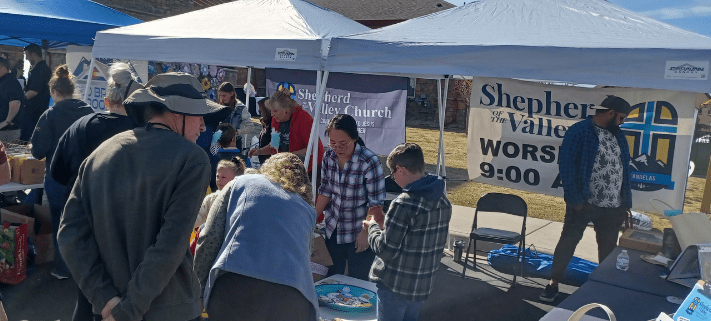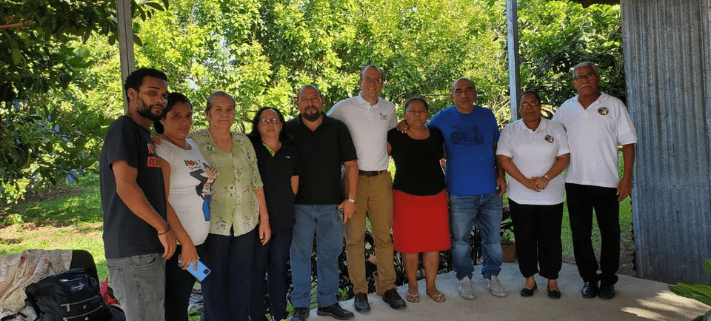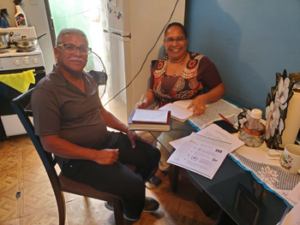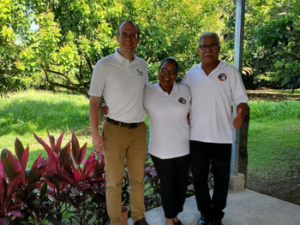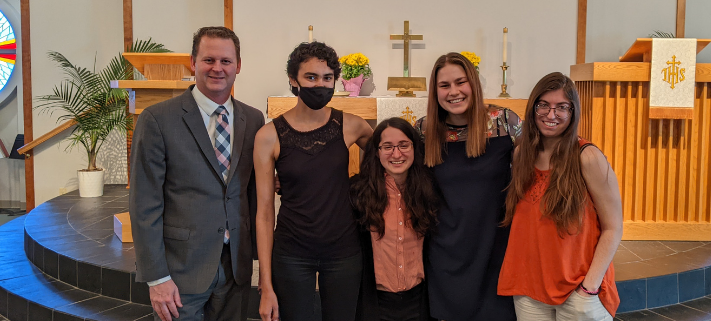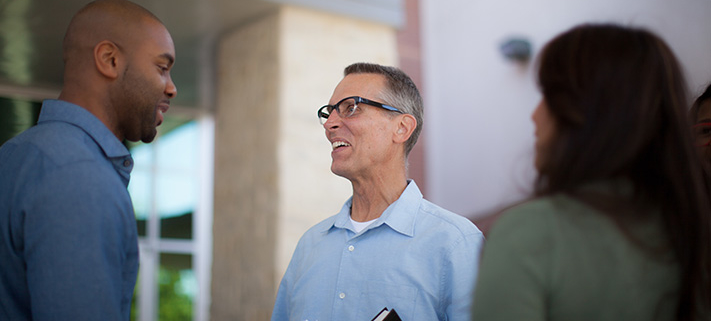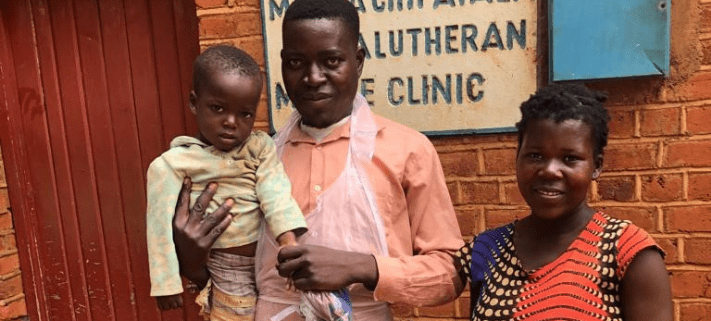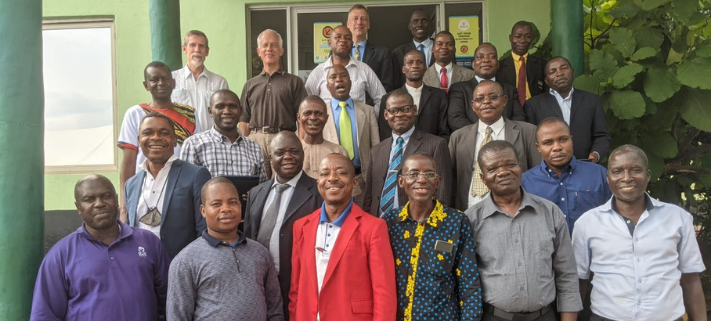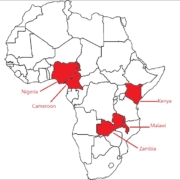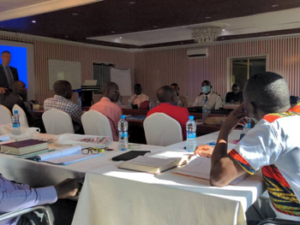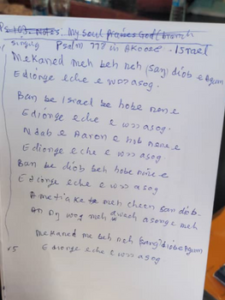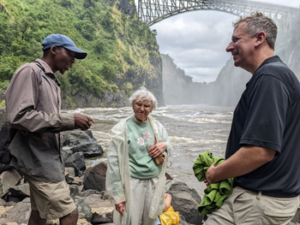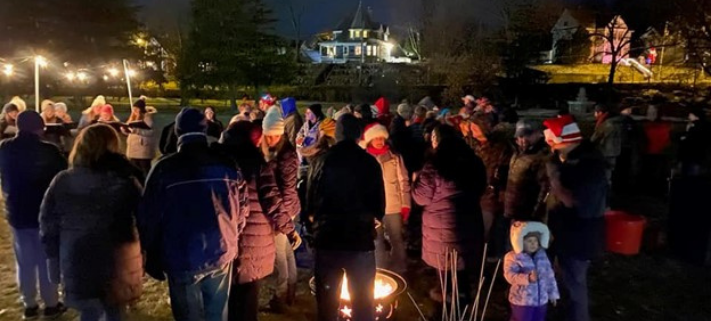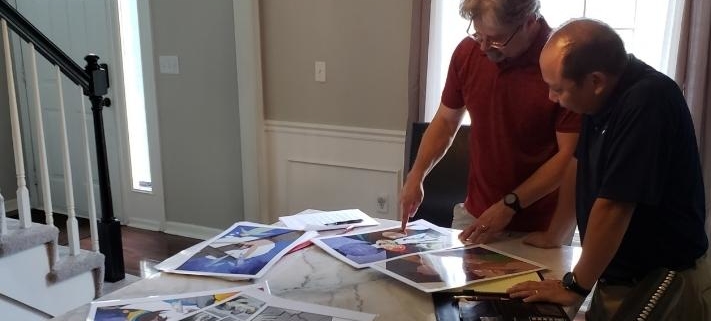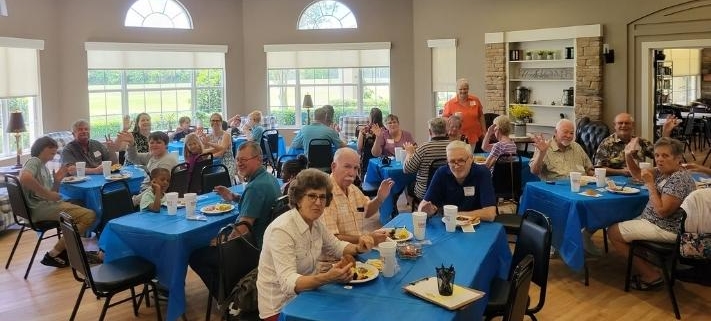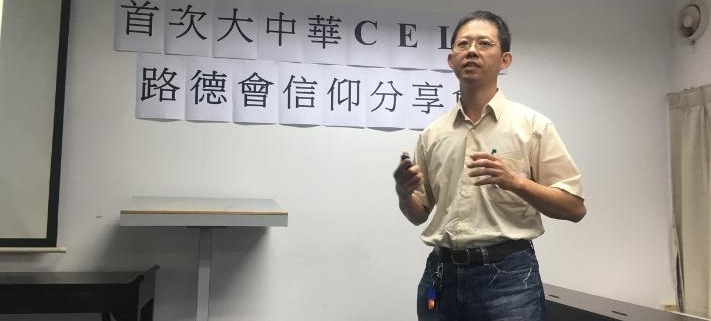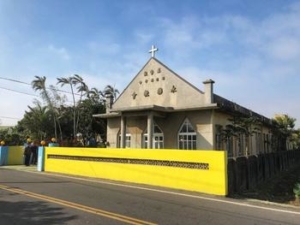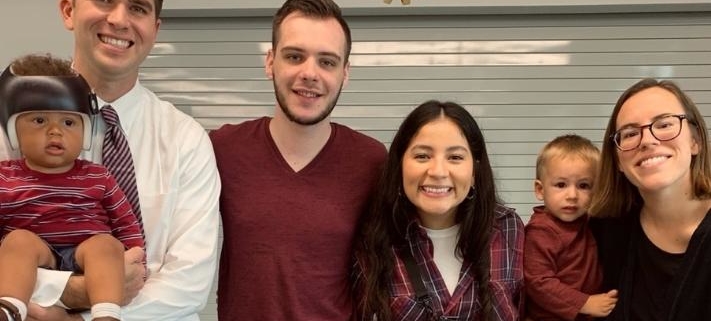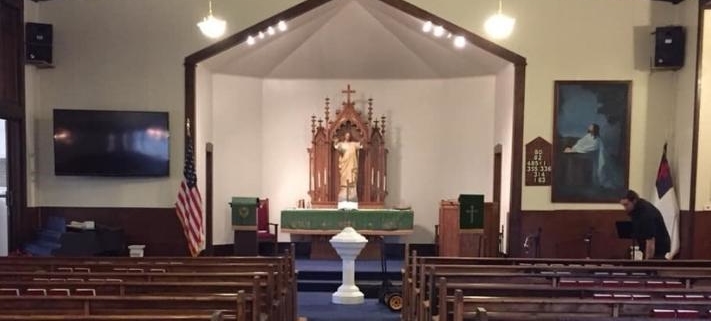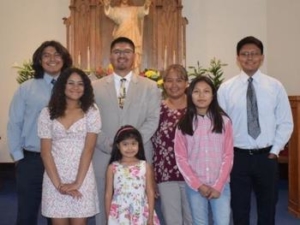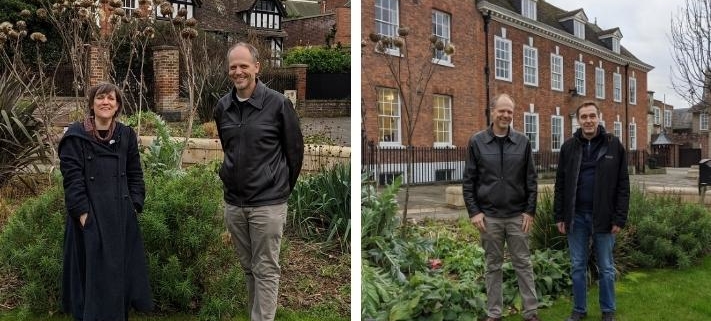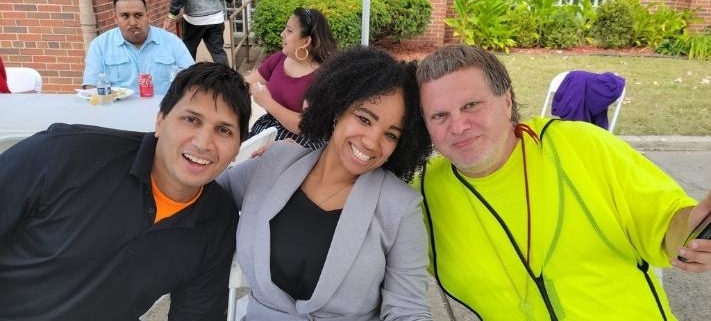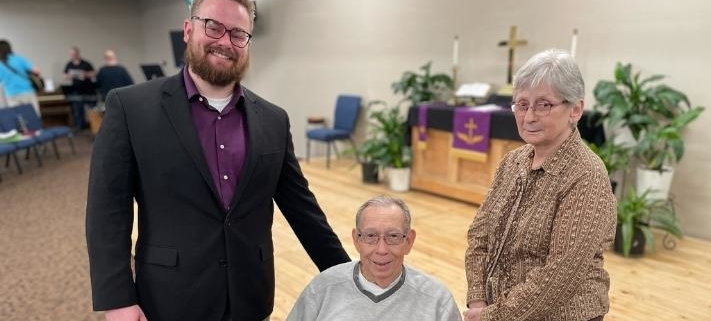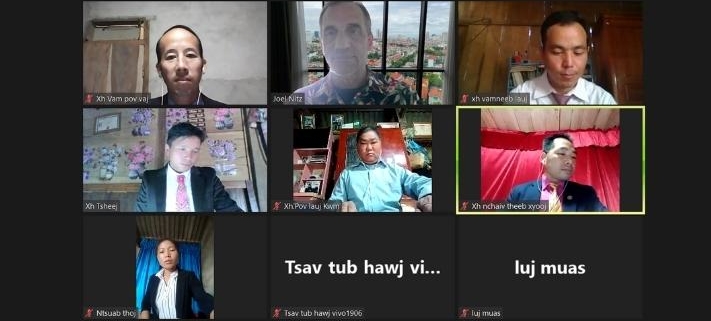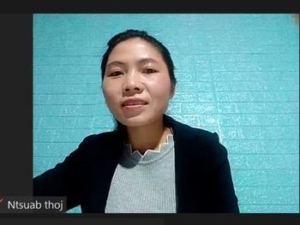This issue begins a new series on worship and outreach. The goal is simple: to encourage all congregations to do their very best in both realms. But isn’t it fair to assume that they already are? Doing their best? By some measurements, yes. But it’s also clear that our churches face various challenges. If improvements can be realized, we are likely under God to see greater blessings in both worship and outreach.
So, this series will share perspectives and ideas from a variety of congregations, hoping to inspire ongoing attention to these twin priorities. Of course, a series of articles alone will not provide all the resources needed. This series joins other resources: a new hymnal suite of resources, welscongregationalservices.net, and much more. As part of this emphasis, readers are also encouraged to review materials from the 2010 symposium on worship and outreach: wisluthsem.org/symposium-archives.
When I was young, my dad listened to talk radio. I used to think, “This is so boring! How can anybody listen to this and not fall asleep?” Yet, ironically, I find myself really getting into podcasts, some over an hour long. The ones that I find most useful are those that pull you into a conversation. The podcast hosts are not trying to give you a prescriptive way to do something, but they are giving you the opportunity to be a passive member of a conversation. As the conversation goes on, you are thinking through your own thoughts on the subject matter and how you might apply things in your specific context.
In a similar way, I’d like to pull you into some of the conversations of a new mission church as they thought through worship, how worship would interact with outreach, and how a church could thoughtfully accomplish several things with a worship service. I pray that it may be edifying for you as you think through worship in your context. Certainly, much that follows is descriptive and not prescriptive. (Goes without saying, but I say it anyway.)
Word-Centered Worship
In an introduction to a New York Times Magazine article, Nausicaa Renner wrote, “There’s nothing more persuasive than the obvious. To appeal to it is to ask people to be bigger, better, more noble—to take a sweeping look at the facts, admit what is plain and do the right thing. Tell me with a fixed gaze and an air of confidence that something is obvious. I will be tempted to believe you, if only to join in the clarity and sense of purpose that comes with accepting what is staring me in the face.”1
Now certainly this author was, in no way, speaking about the Church, the Bible, or anything remotely religious. Yet, this quote makes a case for stating the obvious. In the beginning stages of planting a new church, sometimes it feels as if you are consistently stating the obvious. Let me tell you what I mean.
As a new mission church, we gathered together for almost an entire year before we had our first worship service. This was a unique time in the life of our church, but a vital time. We’d gather for meetings that were part Bible study, part mission meeting, and part fellowship. They were an opportunity to have conversations about the ministry that we hoped to carry out in our area.
Although this Core Group (as we called it) was made up of mostly long-time WELS members, these discussions always started with stating the obvious, grounding ourselves in the obvious. And what I mean by that is the obvious truths from Scripture.
Here is an obvious truth that pervaded our conversations: the Word of God needed to hold the center position of our ministry. We wanted to be and needed to be a Word-centered church.
If we truly believe what we do about the Word, why wouldn’t we make it the center? If we believe that faith is created and strengthened through the Word (Rom. 10:17), then it really ought to be the focal point. If we believe that the Word is active and powerful (Heb. 4:12; Rom. 1:16), then it ought to be utilized liberally.
That certainly has many applications in the life of the church, including its application to the worship life of the church. Whether it was the songs, the readings, the responses, or the sermon, they had to be centered on the Word. Word-centered worship will not only reach out with the power of the Spirit to the new guest, but it will also strengthen and prepare the long-time member to reach out with the gospel that is proclaimed and explained among them.
Through Word-centered worship, both in-reach and outreach may be accomplished. The Holy Spirit works through the Word to create faith in the unbeliever who wandered into your church, to restore faith in the de-churched person who came back, or to strengthen faith in the person who has been in church all along.
We wanted people to know from our worship that the Word of God defines this congregation. We don’t just claim the Bible is important in the “About Us” section of our website, but we actually carry that out in a real, tangible way.
In a survey sent out to our congregation about worship, it was asked, “What do you think a new guest might take away from our worship services?” One member gave an answer and an anecdote from a different WELS congregation, “[The guest] can see that the Bible is a part of the entire service. I met someone at one of our WELS churches a few years ago that had gone through the BIC and became a member at the church because he had come as a visitor and had never had a church that would back up so much of the sermon with the Bible.”
In this case, it is definitely worth stating the obvious: the Word of God needs to hold the center position in our worship.
I was surprised to find some insights about liturgy-based worship.
Liturgy-Based Worship
I preface this aspect of the conversation by saying that some people in our region are familiar with historic liturgy. This region of South Dakota is largely Catholic or Lutheran, so some people who walk into our services are used to having a set order of worship and likely know many of the components, like creeds, Lord’s Prayer, etc. Yet, as I observed our Core Group’s conversations and sought input from people with zero connection to our church, I was surprised at some of their insights about liturgy-based worship.
#1 – Millennials and Gen Z see great value in things that are historic.
Speaking as someone who does own a record player, I was not surprised to find this article title and subtitle in an online culture page: “Why Are Old Things Increasingly Popular with Young People? Vinyl, calligraphy, and vintage are three of a handful of trends that have little place in the tech age, but are enjoying a resurgence nonetheless.”2 Certainly it was not the goal of our church to jump on something because of a trend or a fad, but it was worth considering: why is there a desire to be connected to something old or historic?
What I found in talking with people inside and outside our church is that they see value in being connected to something that is bigger than they are. When it is taught that the historic liturgy that we use “has been shaped throughout 2,000 years of Christian history,”3 there is this sense that we are connected with Christians of the past and that connection is appreciated.
However, as a congregation, we realized that if someone were to walk in our doors and not understand the connection to historic Christianity, then we are failing to provide them with the opportunity to appreciate it. We’ve found small ways to accomplish this with notes included in the bulletins or explanations in the back of the bulletins or we’ll take time during the service to explain something (even if we’ve explained it before).4
From the survey of our members here is one response: “I appreciate the effort to be connected to past generations of Christians while at the same time speaking to challenges/opportunities unique to this century.”
#2 – In a world that is constantly changing, the stability of the liturgy is cherished.
This point is not unrelated to the previous point. The historic aspect of the liturgy communicates stability because it has endured through centuries. For many this is a precious quality. In a tech dominated world, things are changing so quickly. Stability is coveted and seemingly elusive to many people.
Yet it’s not just the historic aspect of the liturgy that communicates stability. The repetition aspect also communicates stability. The lives of your parishioners may have a lot of instability, and they may go through many changes, but there is a stableness to the liturgy that is different from the world around them.
One of our members said, “I like knowing what to expect when I come to worship. When everything else may be out of control, I know that when I come to worship, I’m going to hear the Word and I know how the service will go.”
Jonathan Bauer made a similar point about how worship can offer a respite from the instability of people’s lives, “Rather than engaging people with the gospel using forms that mirror what people find comfortable and familiar, perhaps the real opportunity presented by modern life is to highlight and excel at the features of historic, liturgical worship that offer people a respite from what is comfortable and familiar.”5
#3 – Repetition is beneficial to the new Christian.
Around Easter of 2021, a single-mom and her son visited our worship. She had grown up around church but hadn’t been back for a while. Her son was baptized but had never really attended church.
This single mom (we’ll call her Sandy) took our Bible Information Class and joined the church. Sandy’s son, Michael, who was 15 years old, started taking Catechism classes individually with me. I had the opportunity to talk with him about our worship from his perspective. Here are a couple of his comments:
“I actually really like the repetition that we get at church because even if something is difficult for me the first time, it gets easier the next time. It doesn’t take too much time to catch on.”
“I also like the repetition, because without even trying to memorize it, I feel like I already know the Lord’s Prayer and the Apostles’ Creed.”
We are connected with Christians of the past and that connection is appreciated.
#4 – Participatory worship is beneficial.
Christianity Today released a special pastor’s issue in the early spring of 2022. One of the articles was “As Pastoral Credibility Erodes, How Can We Respond?” The article included several stats including answers to this question: “Would you consider a pastor to be a trustworthy source of wisdom?” This study found that 19% of all adults surveyed say “no,” and on the flip side, only 23% gave a definitive “yes.”6
While you could apply the results of this survey in different ways, here’s one takeaway to consider: If pastoral trustworthiness is eroding, then does it make sense to lengthen the sermon where only the pastor is speaking and as a result shorten the parts of the service that are participatory? The answer would appear to be no. It would seem all the more important to make the Word the center of worship and to get the parishioners involved in the service. We certainly aren’t dismissing the importance of the sermon and its role in the service, but we are encouraged to hear a crowd of voices in worship.
Does it make sense to … shorten the parts of the service that are participatory?
Jim Belcher, author of Deep Church, connected this concept to the universal priesthood of all believers. He wrote (regarding worship), “As priests, we are all required to be involved. There are no spectators. Thus, the liturgy should be as interactive as possible. It is a dialogue between the people and God. God speaks to us through his Word and we respond. Throughout the service, God engages us in the call to worship, multiple Scripture readings, the sermon and the words of blessing, and each time we respond in prayer, song or action. It is dynamic, action-packed, thrilling.”7
In our member survey, one person said this, “There is no dominant personality in the room and therefore none are pushed to the margins. All matter.”
Guest Awareness in Worship
When we first started worship in September of 2020, we didn’t have much happening besides worship. We had a BIC starting soon and one other Bible class, but we had zero programs and no big events on the horizon. So, in a lot of ways, worship was it. It was the focal point. This was what our members were inviting people to come and see.
So, the natural consequence of that was to plan and carry out worship assuming that you will have an unchurched or de-churched guest sitting among the congregation. We always wanted to try to see the Sunday morning experience through their eyes. Were they greeted by a smiling face in the parking lot or at the door? Was someone there to direct them to the coffee or give them a worship folder? We considered questions like that, but we also considered what they would see in the actual worship service.
While granting that someone might not understand some element of the service at first, we wanted to make sure that the service was accessible. One way we do that is by offering two methods of following along with the service, both printed in the worship folder and projected on a screen.8
We have also utilized the worship folder to explain why certain things happen in the service. For example, sometimes we include footnotes to indicate the biblical source for some items (e.g., responses, the Lord’s Prayer, the Gloria or the Sanctus). Other times footnotes explain historical connections (e.g., the Nicene or Apostles’ Creeds).
The worship folder also helps people to focus on the sermon. We encourage people to take notes and include guiding questions that help them follow along. These questions are also used as a devotional resource outside of worship. We have also provided information on the sermon page of the worship folder to aid understanding. For example, on Transfiguration Sunday the sermon referenced the Old and New Covenants and words like condemnation and righteousness. While these were also explained during the sermon, we also provided a concise definition on the sermon page so that no one would feel lost.
“I like when we take time to explain why we do some of the things we do during a service.”
While these measures were specifically meant to target guests, even long-time members have appreciated such resources. One member said, “I like when we take time to explain why we do some of the things we do during a service. I learn new things or am reminded of things I’ve forgotten.” Another said, “I really enjoy the questions to think about in relation to the sermon. It helps me to take notes, which helps me to retain things better.”
Conclusion
What a blessing! What a blessing that we get to wrestle with how best to carry out a service where God gives his gifts to his people! What a blessing that we get to communicate the gospel of free forgiveness to people who need it! Such a blessing and also an important responsibility.
Since it is such an important responsibility, I pray that the worship conversation continues and that we continually strive to bring God’s gifts to his people. Blessings as you administer those gifts, brothers.
By Craig Wilke
Pastor Wilke graduated from Wisconsin Lutheran Seminary in 2019 and was assigned to start a new mission in Brandon, SD. In September of 2020, after a year of preparatory work, Sure Foundation launched every-week worship with 75 people in attendance at their first service.
1 Renner, Nausicaa. “How Do You Explain the ‘Obvious?’” The New York Times Magazine. August 21, 2018.
2 Pritchett, August. “Why Are Old Things Increasingly Popular with Young People?” Study Breaks, June 10, 2017. studybreaks.com/culture/past/#:~:text=Theres’s%20a%20loss%20of%20quality,a%20way%20to%20stand%20out.
3 Strey, Johnold J. Christian Worship: God Gives His Gospel Gifts. (Northwestern: Milwaukee, 2021), 82.
4 See “Worship Service Notations – Sharpsburg 2014” at worship.welsrc.net/downloads-worship/worship-education.
5 Bauer, Jonathan. “Worship and Outreach.” Worship the Lord. No. 106, January 2021, 3.
6 Packiam, Glenn. “As Pastoral Credibility Erodes, How Can We Respond?” Christianity Today: CT Pastors Special Issue. Spring 2022, 34-35.
7 Belcher, Jim. Deep Church: A Third Way Beyond Emerging and Traditional (InterVarsity: Downers Grove, 2009), 139.
8 A comment from the editor: If you are not already committed to projecting hymns and liturgy, give careful thought to whether this is really an improvement in your setting or not. Just because Service Builder will export a slide deck doesn’t mean that this is recommended in every situation. See “Projection in Worship” at welscongregationalservices.net/hymnal-intro-presentations, especially the video linked in the final bullet.
Learn about how WELS is assisting congregations by encouraging worship that glorifies God and proclaims Christ’s love.
WELS Commission on Worship provides resources for individuals and families nationwide. Consider supporting these ministries with your prayers and gifts.
[fbcomments num=”5″]


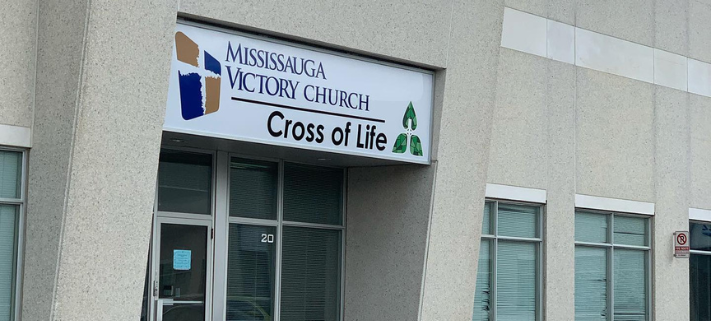
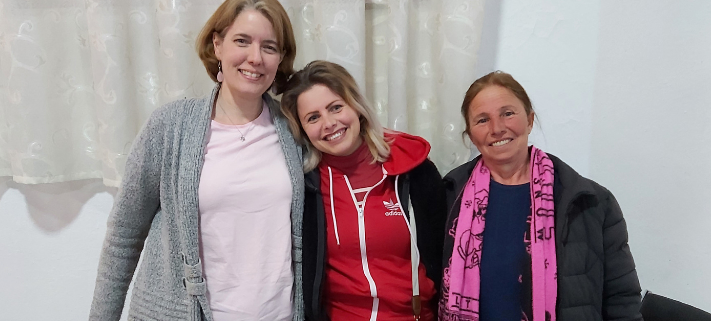
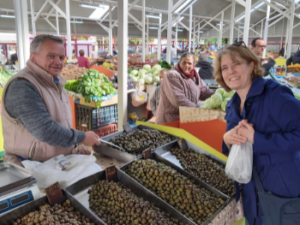
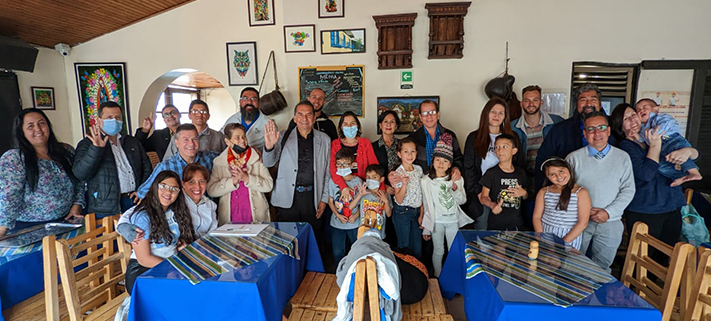
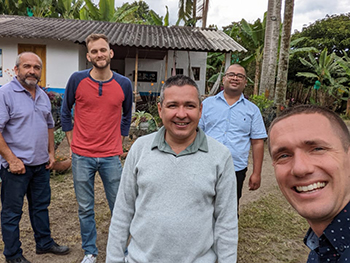
 2) On Saturday, July 9, Academia Cristo student Yeison Lozano from Bogotá, Colombia, conducted a two hour interview with Missionary Behmer about our ministry on his radio program. He made several pleas to his listeners to download our app and enroll in live classes. Yeison gathers an independent group in a rented space in Bogotá and shows serious potential to become a church planter.
2) On Saturday, July 9, Academia Cristo student Yeison Lozano from Bogotá, Colombia, conducted a two hour interview with Missionary Behmer about our ministry on his radio program. He made several pleas to his listeners to download our app and enroll in live classes. Yeison gathers an independent group in a rented space in Bogotá and shows serious potential to become a church planter.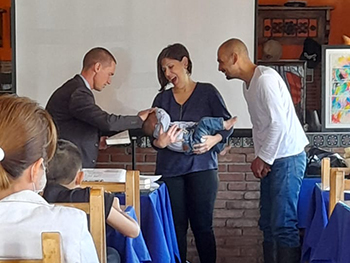 3) On Sunday, July 10, they held an in-person workshop in Bogotá. There were 27 in attendance. Among the participants were Academia Cristo student Verny (pediatric physician) and his family from Costa Rica. They were in Bogotá on vacation. Lucho Herrera from Doral, Fla., was in Bogotá and served as the keynote speaker. Academia Cristo student Camilo Herrera hosted at his restaurant and led the final worship service. Missionary Behmer had the privilege of baptizing the son of an Academia Cristo student! (Pictured)
3) On Sunday, July 10, they held an in-person workshop in Bogotá. There were 27 in attendance. Among the participants were Academia Cristo student Verny (pediatric physician) and his family from Costa Rica. They were in Bogotá on vacation. Lucho Herrera from Doral, Fla., was in Bogotá and served as the keynote speaker. Academia Cristo student Camilo Herrera hosted at his restaurant and led the final worship service. Missionary Behmer had the privilege of baptizing the son of an Academia Cristo student! (Pictured)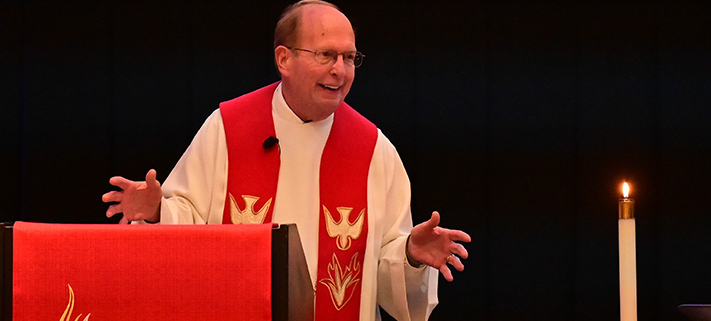

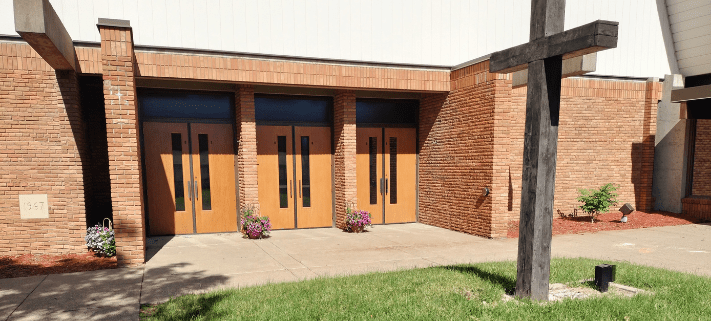
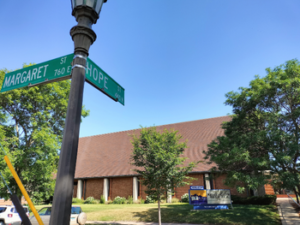
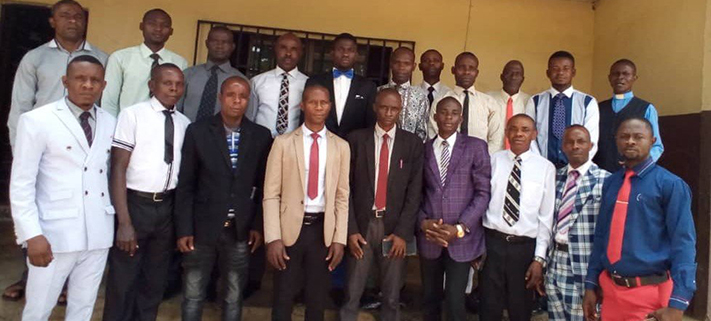

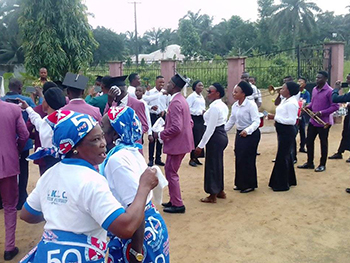

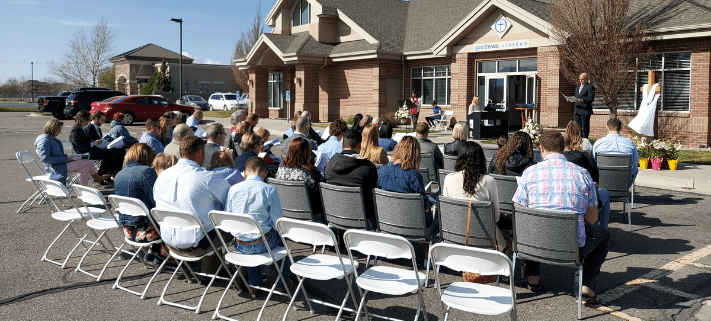
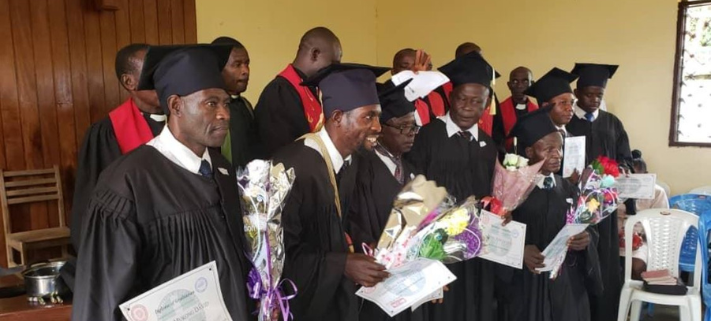



 The woman who has served as the director of this center for more than 25 years and the dedicated ladies who volunteer made everything run smoothly.
The woman who has served as the director of this center for more than 25 years and the dedicated ladies who volunteer made everything run smoothly.